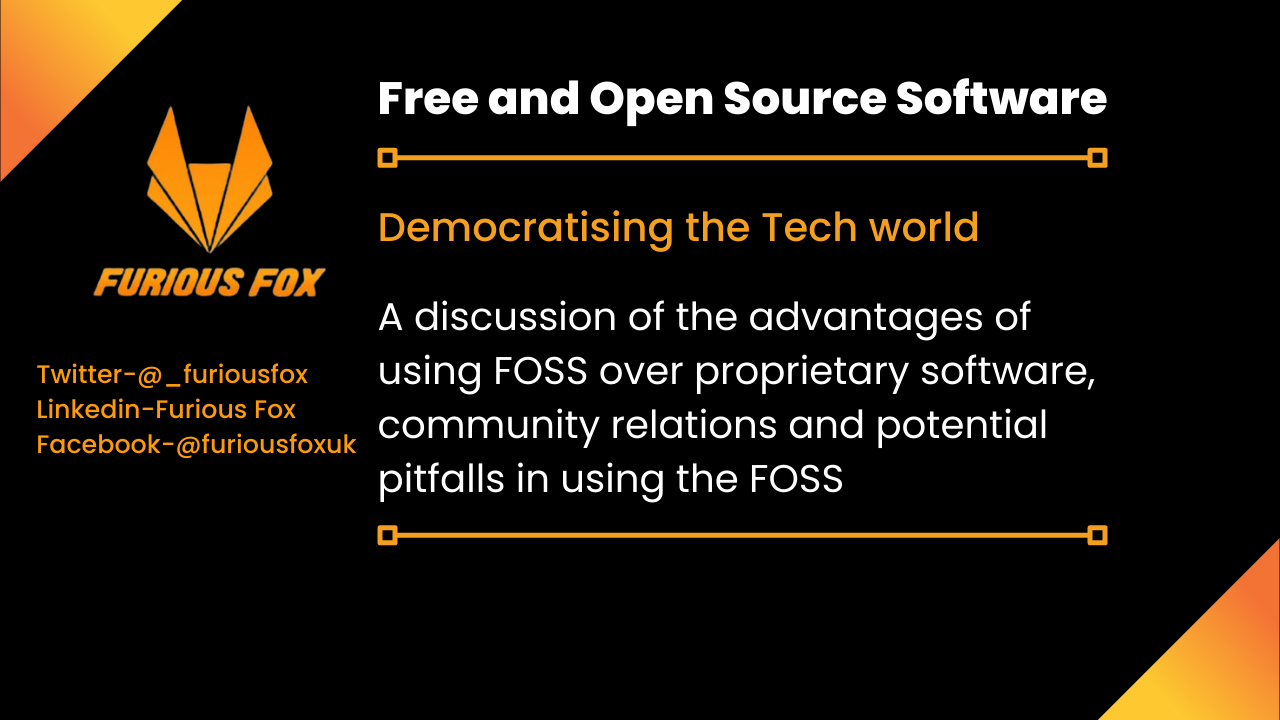
Free and open-source software (FOSS) is a term used to refer to groups of software consisting of both free software and open-source software where anyone is freely licensed to use, copy, study, and change the software in any way, and the source code is openly shared so that people are encouraged to improve the design of the software voluntarily. This is in contrast to proprietary software, where the software is under restrictive copyright licensing, and the source code is usually hidden from the users.
Most software developers nowadays use FOSS extensively in their professional work. As it’s not proprietary software, they can collaborate and improve upon the existing software.
This trend of modern innovation relying heavily on FOSS comes as a blessing to those not from a software background. Most of the software is freely available, and so are an array of tutorials, articles and instructional videos contributed by the community, which are immensely helpful for beginners looking to start using the software. It levels the playing field by a lot, now allowing almost everyone with a laptop and a working idea to build their own platforms and execute their vision. While deploying most applications and Web portals require a certain amount of investment, building and testing an idea cost almost nothing.
However, there are certain pitfalls to using FOSS.
In the case of proprietary software, there is a group of full-time professionals dedicated to developing and maintaining code, thus delivering a superior product. Open source software is largely dependent on participation from the community for this kind of upkeep, which is not guaranteed. Most companies have abandoned proprietary software in the interest of profitability and focus on developing open source software. This has two benefits: one, the software may get professional attention and continue to be a quality product, and two, unlike proprietary software, which, if it ceases development, there are no alternatives, anybody willing to use open source can contribute to its development.
There is also an increased likelihood of bugs and errors in user-developed libraries. Without proper documentation for the code, there may be an array of missing features that are not updated, which may break the product.
Open source software is largely reliant on the interest of the community, and in the interest of maintaining a good platform, software developers should focus on giving back to the community, if not by further development, then by maintaining tutorials and documentation that help beginners and interested parties.